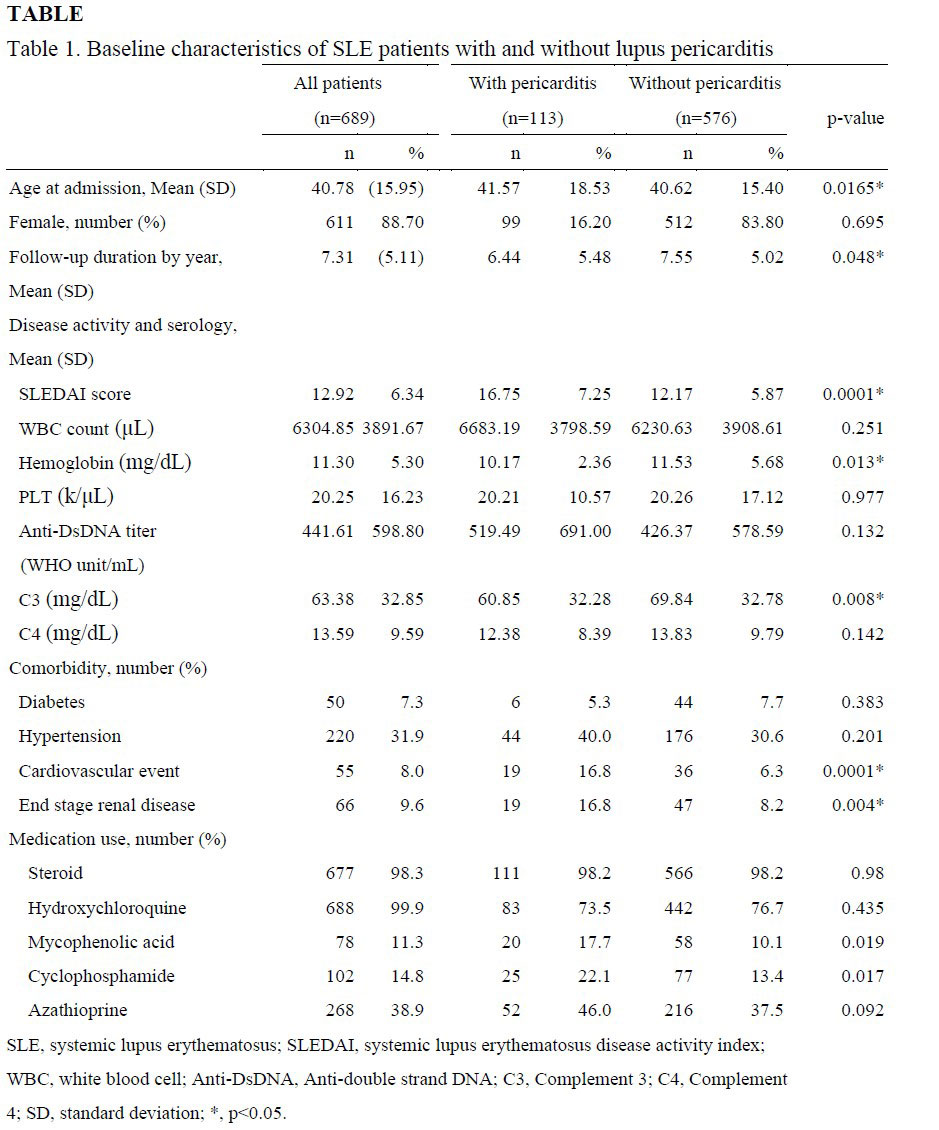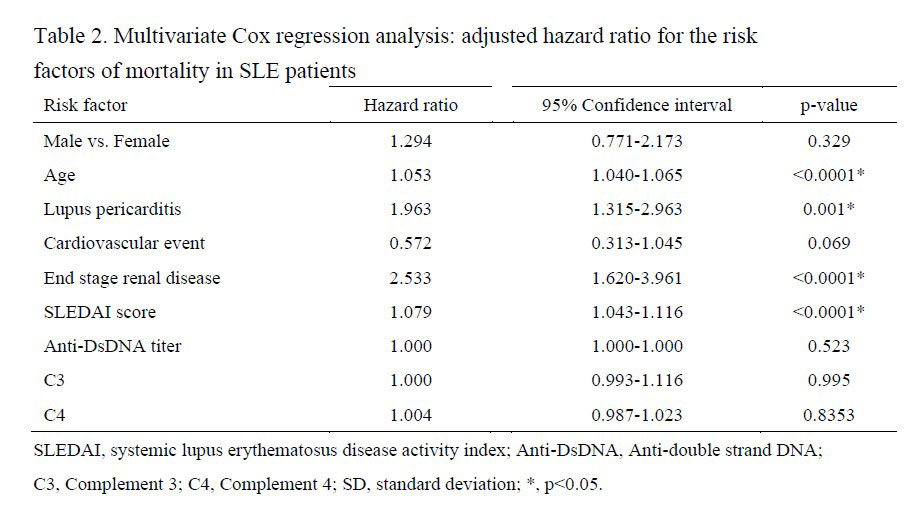Session Information
Date: Sunday, November 13, 2022
Title: SLE – Diagnosis, Manifestations, and Outcomes Poster II: Manifestations
Session Type: Poster Session C
Session Time: 1:00PM-3:00PM
Background/Purpose: Patients with systemic lupus erythematosus (SLE) had a higher risk of pericarditis, which could be life-threating, but there has been no research focusing on the prognosis of patients with lupus pericarditis. This study was conducted the prognostic factors of mortality in patients with lupus pericarditis.
Methods: In this observational cohort study, SLE inpatients with lupus pericarditis treated at Change Gung Memorial Hospital between January 2005 and December 2012 were included and age, gender, the age onset of SLE, SLE disease activity index (SLEDAI) score, comorbidities and treatment regimen were collected. Univariate, multivariate COX regression and Kaplan–Meier survival curve analysis were used to explore the risk of mortality in these patients.
Results: The mean ages at admission were 40.78 ± 15.92 years. Of the 689 patients, 113 (16.4%) had patients with lupus pericarditis. Patients with lupus pericarditis showed older age, shorter follow-up duration, higher disease activity and higher rates of comorbidities compared to patients without pericarditis. Cox regression adjusted analysis indicated that pericarditis (HR 1.963, 95% CI 1.315-2.963, p=0.001), old age at admission (HR 1.053, 95% CI 1.040-1.065, p < 0.001), high SLEDAI score (HR 1.079, 95% CI 1.043-1.116, p< 0.0001), and end stage kidney disease (HR 2.533, 95% CI 1.620-3.961, p< 0.0001) were associated with higher mortality. The Kaplan–Meier survival curve analysis demonstrated higher mortality in patients with pericarditis (Log-rank test, p < 0.0001).
Conclusion: High proportion of SLE patients have manifestations of lupus pericarditis. Even without pericardial tamponade, patients with lupus pericarditis have a great impact on the risk of mortality. Early diagnosis and treatment is needed for these patients.
To cite this abstract in AMA style:
CHEN Y, Fang Y. Patients with Lupus Pericarditis Have the Impact on the Poor Survival Outcome: A Retrospective Cohort Study [abstract]. Arthritis Rheumatol. 2022; 74 (suppl 9). https://acrabstracts.org/abstract/patients-with-lupus-pericarditis-have-the-impact-on-the-poor-survival-outcome-a-retrospective-cohort-study/. Accessed .« Back to ACR Convergence 2022
ACR Meeting Abstracts - https://acrabstracts.org/abstract/patients-with-lupus-pericarditis-have-the-impact-on-the-poor-survival-outcome-a-retrospective-cohort-study/



